- Folio No. 9
- About
- Feral Parrot : The Blog
- INTERVIEWS
- SUBMISSIONS
-
ISSUE ARCHIVE
- PRINT Chapbook No.6 Healing Arts
- Online Issue No.9
- Online Issue No.1 Fall 2016
- Online Issue No.2 Spring 2017
- ONLINE Issue No.3 Fall 2017
- PRINT Vol 72 No 2 Fall 2017
- PRINT Vol 73 No.1 Fall 2018
- ONLINE Issue No. 4 Fall 2018
- Online Issue No.5 Summer 2018
- FOLIO No.1 Fall 2018 VOTE
- ONLINE Issue No.6 Fall 2018 Fall Spirituality
- FOLIO 2 Fall 2019 Celebrating Dia De Los Muertos
- FOLIO No.3 -- Moon Moon Spring 2019
- FOLIO No.4 Celebrating New PCC Writers
- FOLIO No.5 City of Redemption
- FOLIO No.6 Spring 2020
- FOLIO No. 7 - Winter 2021 Into the Forest
- 2022 Handley Awards
- Inscape Alumni Board
- PRINT Chapbook No. 7 Healing Arts
- Blog
- Untitled
Written by Karen HerreraA photo by Karen Herrera On November 1st, I went to the Boston Court Theater to see Everything That Never Happened, by Sarah B. Mantell. The play was a comedy based on Shakespeare’s, The Merchant of Venice. Although I had no prior knowledge about the play, I thoroughly enjoyed the experience and thought director Jessica Kubzansky did an excellent job adapting it. The play revolves around two Venice side characters, father and daughter Shylock and Jessica, who are Jewish and portrayed as villains by Shakespeare. The anti-semitic tones of the original play were swapped out with the perspective of those violated and discriminated against, and even without the current social climate, it was incredibly emotional and thought provoking. I cried twice. The play took place in 1611 - this was repeated many, many times in irony. However, Jessica continually referenced other historical times when her religion was discriminated against: sometimes in the past, sometimes in the future. This didn’t take away from the immersion of the world though, but rather added to the comedy and heavy weight of the play. I definitely think the set and the way the cast interacted with it played a huge part in evoking emotions in the audience. The actual structure of the set was very minimalist and versatile: the posts served as the waterside location Jessica met up with her lover Lorenzo, as well as the home she shared with her father and their servant Gobbo. The lighting and actors' movements showed the shift between two settings in a natural and believable way that worked with the rhetoric and was never choppy. All of the props fit the set in a non-distracting way, like the dinner table and meals Jessica and Shylock made, or the boat Lorenzo came to take away Jessica with. When Gobbo revealed himself on the boat and Lorenzo fell overboard, he flailed about despite no actual water was present, this definitely added to the comedic effect. And of course, Shylock’s violent baptism in the final scene, where the water poured out from the ceiling left the audience silenced and able to experience even more how horrifically these characters and their real life counterparts were treated. This play got a heavy emotional response out of me and I think that that is ultimately the most important aspect in theater. Even though there were small things wrong with the production, my reaction of the play was not negatively affected, as much as it gave me a good experience. Karen is a PCC student majoring in English, hoping to transfer to a 4 year university to get her teaching credential. Karen says, "I love plays, science fiction, and anything that combines the two."
0 Comments
Written by Chloe HawkinsOn a crisp Spring morning, hoards of women gathered at the Pasadena Hilton hotel to celebrate one other, together. It was the 2019 Pasadena Festival of Women Authors, attended by enthusiastic readers, local writers, editors and all around badass women. Around 8:00 AM the ladies trickled in through the lobby, down the hall to a room filled with hundreds of tea, muffins, churros, croissants, jugs of coffee, and bowls of butter and jam. There was also flowers and books galore. The collective vibe of the room was caffeinated excitement. We had a roster of stunning writers scheduled to speak, including Paula McLain, Ivy Pochoda, Rebecca Makkai, Nova Jacobs, Aja Gabel, Zinzi Clemmons and the 2018 National Book Award winner: Sigrid Nunez. After checking in and oogling at tables of colorful books, I stacked my plate with croissants and butter as the ballroom doors opened and women flooded in eagerly to find their assigned tables. Paula McLain was the first author to speak. She talked about growing up in the foster system, her humble beginnings as a poet, and how her dream state informed the contents of her writing. One fateful night, years ago, she read Hemingway’s Parisian classic, A Moveable Feast, and became swept away in the moment. The moment was early 1920s on Paris’ Rive Gauche, a historic slice of time buzzing with jazz, art, romance, red wine, prolific writers, and cobblestone rues. Paula began researching Hemingway and his wives, and soon discovered a well of untold stories. This research became her framework for bestselling novel, The Paris Wife, and her most recent book Love and Ruin. Paula dug particularly deep for any and all historical insight on Hemingway’s first wife Elizabeth Hadley Richardson, and his third wife Martha Gellhorn. During her talk, Paula explained how this research became so absorbing, she reached a point where edges blurred between these women and herself. Paula explained, “when you lose yourself in someone else’s story, it sharpens your humanity, empathy and all the senses.” In her quest, she discovered some incredible facts that illuminated the plot for her books. Paula explained to the audience how some of the facts she discovered simply blew her mind, like the fact that Hadley was the only one of Hemingway’s wives who wasn’t a journalist, and that Martha Gellhorn’s father was Hadley’s family gynecologist. “You just can’t make this stuff up, the facts are better than anything I could have made up” Paula exclaimed. After Paula McLain, we listened to Ivy Pochoda discuss a bit of personal history, her relationship to writing, and her experience as a writer and teacher in LA. She told us that one can begin a writing career any time, anywhere, during any period of their lives, and that writing does not discriminate. You just have to do the damn thing -- to write pages and pages! Ivy was not always a writer. Before achieving her status as acclaimed author, she was a professional squash player, ranked 38th in the world. She noted that with writing, similar in training for sports, you only have yourself to rely on if you are to make personal progress. Nobody forced her to wake up extra early for squash practice every morning in college before attending classes. Nobody forces an athlete to focus, or train, or eat well in their private time. It is a personal decision, just as it is to write a book. Ivy’s talk was fascinating. She discussed her role as a teacher facilitating creative writing classes in Skid Row and how it has informed her writing. She noted how residents of Skid Row are largely discriminated against, and though each person has a unique story, their stories go largely untold because they are so stereotyped. Ivy explained that Skid Row is in fact, a culture, a neighborhood and a diverse community. She emphasized that her students “don’t live ON Skid Row, they live IN Skid Row. It’s a neighborhood, and the differentiation is important, because it gives agency.” Together with her students, Ivy helps to publish one of the oldest zines produced today, Skid Row Zine. You can find their booth at the 2019 L.A. Zine Fest. After Ivy’s talk, we had a break with introductions to three breakout authors, a chance to buy books, drink more coffee, and choose one of the three young authors’ talks to attend in smaller rooms. After, we returned to the grand ballroom for mini fruit tarts, chocolate ganache cakes, avocado chicken salads lunch and our last two talks from Rebecca Makkai and the 2018 National Book Award winner, Sigrid Nunez. Rebecca discussed the long and delicate process of writing her book The Great Believers, a story outlining the AIDS crisis spanning from 1980s Chicago to contemporary Paris. She noted the extensive research that this book required in order for Rebecca’s voice as the writer to feel tender, authentic and historically accurate. She described the effect this research had on her personal life as both a person and a writer, including hundreds of interviews with the people who were personally affected by this crisis. Fully committed to the authenticity of her book, Rebecca took four years to research the AIDS epidemic in Chicago, interviewing doctors, lawyers, artists, bartenders, activists, survivors, friends and friends of friends. She read every issue of the Windy City Times, Chicago’s largest gay weekly publication, from 1985 to 1992. Rebecca’s tender, meticulous, heartfelt dedication to her subject was truly inspiring. The last speaker of the day was Sigrid Nunez. She spoke about writing in an eloquent and matter of fact way. My heart skipped a beat when I learned that in the 1970s, Sigrid shared an apartment with one of my all-time favorite authors, Susan Sontag. During this time Sontag was recovering from cancer surgery and Sigrid was a budding writer, having just earned an M.F.A. from Colombia. She began meeting up with Susan regularly to transcribe her letter correspondence. Eventually, Sigrid met Susan’s son and the two began dating. It was then that she moved in to Sontag’s New York apartment. One important bit of advice Sigrid took away from Susan was to “Teach if you want to, but not for safety. [To] forget tenure for safety, [to] forget safety and security all together, [to] take risks, [and] be bold.” Since getting that advice from Sontag, Sigrid has taught at Columbia, Princeton, Boston University, and the New School-- because she wants to! She’s also been a prolific writer in residence at Amherst, Smith, Baruch, Vassar, Syracuse, and the University of California, Irvine. I purchased Sigrid’s book Siempre Susan and perused it during our midday festival intermission. During Sigrid’s talk in the grand ballroom, she discussed her most recent book The Friend, a story about a woman who endures the unexpected loss of her friend and mentor, and inherits her friend’s huge pet Great Dane. Throughout the course of that day, a host of emotions swept over me. I found myself feeling both overwhelmed and inspired, eager to take action and write my heart out. Paula McLain noted that both protagonists of The Paris Wife and Love and Ruin were twenty eight years old when they married Hemingway, and that she believed this was a significant age for women, a stressful but exciting time when something big is on the horizon. Having just turned twenty eight last month, I felt compelled to buy her latest book. She signed it for me: “For Chloe, who is 28 and on the verge of something.” I walked out of the Pasadena Festival of Women Authors feeling enthusiastic, hopeful and motivated to pen a book of my own. Chloe says, "Many thanks to Dr. Kirsten Ogden for extending the invitation to attend this wonderful event, to Prof. Manuel Perea for facilitating my attendance and to Ellen Carroll from the Pasadena Festival of Women Authors Committee for the generous ticket donation to Pasadena City College."
Written by Chloe Hawkins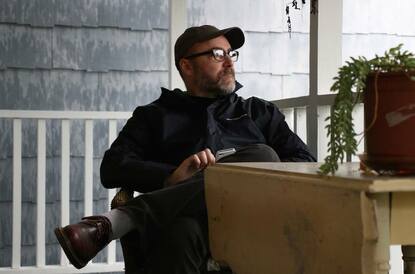 A Photo by Joshua Sanchez A Photo by Joshua Sanchez The year is 2003. Gas is $1.83 per gallon and there is no such thing as an iPhone. Americans are breaking up with AOL for Google. Buffy the Vampire Slayer and Dawson’s Creek have come to an end but PCC’s student-run literary magazine is still going strong. Welcome to the 58th volume of Inscape! Our 2003 full-color issue was undoubtedly one for the history books. This is one of our most rare and coveted issues because it featured original serigraph artwork hand printed with silk screens by the Graphic Communications Technology students at PCC. In addition to over fifty poems and short stories, ten original fine art prints, and a few literary award winners, this issue featured a “Poet of the Year” chosen by Inscape’s seven student editors from 2003. His name is T. Cole Rachel: a writer, teacher and ceramic cat collector from Oklahoma, now living in Brooklyn. Over the past sixteen years his career as a writer has really taken off. Since being selected as our Poet of the Year, Cole has published his second poetry book entitled Bend Don’t Shatter, interviewed countless music legends like Madonna and the B-52s, and is a current contributing writer for cool contemporary publications like The New York Times, Rolling Stone, Pitchfork, Interview and V Magazine. We had the privilege to catch-up with Cole this Spring and and see what he’s been up to since being awarded ye auld 2003 Poet of Year title. Since 2003, society has come a long way technologically speaking. Some writers still love clacking away on a good ol' fashioned typewriter, or the romanticism of pen and paper. Now that we have so many options for how to write, it's really more of a personal preference. We asked Cole to bring us up to speed on his 2019 methodology. Inscape: Ideally... pen, typewriter or computer? Cole: Pen for poems, computer for everything else. Inscape: Who are some of your favorite writers? Cole: I love Sharon Olds, Ada Limon, Albert Goldbarth, and Taeyoon Choi. I love music writers like Jessica Hopper and Hanif Abdurraqib. I adore Hilton Als. Inscape: We love music writer's like you! t’s so exciting to be able to have a chat in 2019 with you, our 2003 Poet of the Year. Could you catch us up on what’s happened in your life since then? Cole: I’m still in NYC, though the past two decades of my life have mostly been consumed with my work as a journalist. After publishing Bend, Don’t Shatter, I started writing about music full-time. Having spent so much time deeply immersed in the culture and writing of poetry, I started to feel kind of burned out on that world and eventually turned my attention to doing other kinds of creative work—doing music supervision for films and for brands, writing about art and culture for magazines, screenwriting, and painting. I had all but given up my poetry writing practice until about 4 years ago, when I was asked to teach a writing workshop here in NYC through ICP (the International Center for Photography) called “Poetry & Photography.” Being back in a workshop setting and working with people, most of them artists, who were interested in writing poetry for the first time, soon reinvigorated my own practice. In the time since I started teaching the class (which I’ve taught now over a dozen times or so), I’ve put together a new manuscript of poems and essays that I’m currently shopping around and I’ve started to send out poems again on a regular basis. I found that I had to step away from poetry for a while until I truly felt like I had something to say again. I’m currently serving as the Senior Editor at an art and culture website called "The Creative Independent", which is a job that nicely dovetails with my own creative pursuits. Inscape: How does living in NYC influence your writing? Cole: Oh, NYC influences me in a million different ways, both good and bad. Everything that has ever happened to me professionally, every job I’ve ever had, every writing assignment I’ve been given, has happened to me because I was here. There is something about the proximity factor—being so close to where everything in culture is happening— that makes it feel both possible and plausible that you can also be a part of it. Most of my most important and fruitful professional relationships originated as casual friendships, most of them born out of just being a part of the culture here—going to readings, seeing lots of shows, and hanging out in arts spaces. In that sense, NYC is great—a sort of an inexhaustible resource. The flipside of that is that NYC is also exhausting, expensive, and a frequently punishing place to live. Nothing here is easy. Inscape: What is your favorite time of day and place to write? Cole: In the morning at my desk in Brooklyn. Or on the subway, usually in the form of making notes on my phone. Inscape: Can you recommend any writing resources? Cole: Not to toot my own horn, but people should check out the site I work for, The Creative Independent. We describe ourselves as “a growing resource of emotional and practical guidance for creative people. Our goal is to educate, inspire, and grow the community of people who create or dream of creating.” Inscape: As a professional interviewer yourself, do you have any advice for our beginning writers learning the art of interviewing? Cole: I teach intro to music journalism at NYU in the summers as a part of the summer journalism program there. I always tell my students that interviews should be conversations, not interrogations. The more you can approach and talk to someone like a normal human being, the better the result will usually be. Inscape: How has writing helped you as a person? Cole: In so so so many ways. The only way I’ve ever been able to understand anything is by writing about it. Writing has made me a kinder, more generally empathetic person, particularly my journalism work. Poetry has helped me understand myself, being a journalist has certainly helped me understand other people...or at least come to grips that most people, despite what they do for a living or where they are in life, are basically grappling with the same kinds of issues that I am. None of us are all that different. Inscape: If you could give your 2003-self some writing/career advice, what would it be? Cole: To be more self-confident and less fearful of trying new things. And I’d tell myself not to worry so much about trying to forge a career. As it turns out, your career kind of just happens while you are doing other things. I’d say to just focus on chasing after the kind of work, both personal and professional, that makes you happy. When you are doing that in a really honest way, truly following your curiosity wherever it leads you, the career stuff kind of just falls into place. T. Cole Rachel featured as our 2003 Poet of the Year in Inscape Vol. 58, available at Pasadena City College’s Shatford Library. Chloe Hawkins is a student at Pasadena City College fulfilling her last few degree requirements. She will graduate this June with a B.A. in Psychology and Studio Art with emphases in photography and creative writing. She says, "My passions are traveling and self-reflective writing. I hope to channel these passions into a one-woman traveling writing show this summer."
|
IMPORTANT NOTE:
PCC Inscape Magazine, housed at Pasadena City College, is following Coronavirus protocols. At this time our staff continues to read submissions and publish web content. Note:
Blog Posts reflect the opinions of the writer and not the opinions of Pasadena City College or Inscape Magazine Editorial Staff Members. Archives
December 2023
Categories
All
|

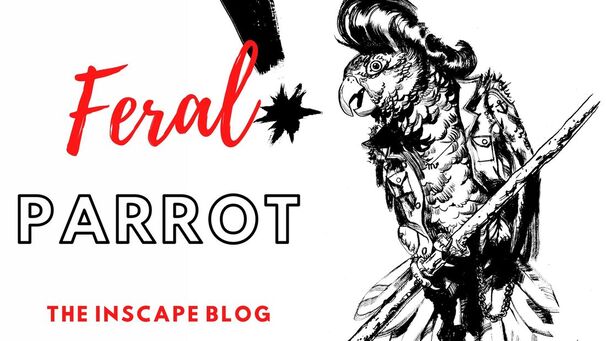
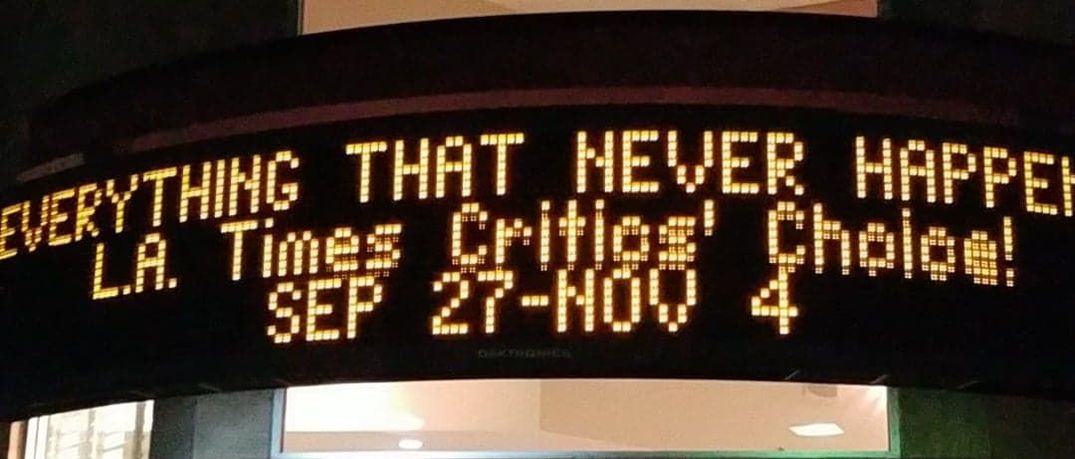
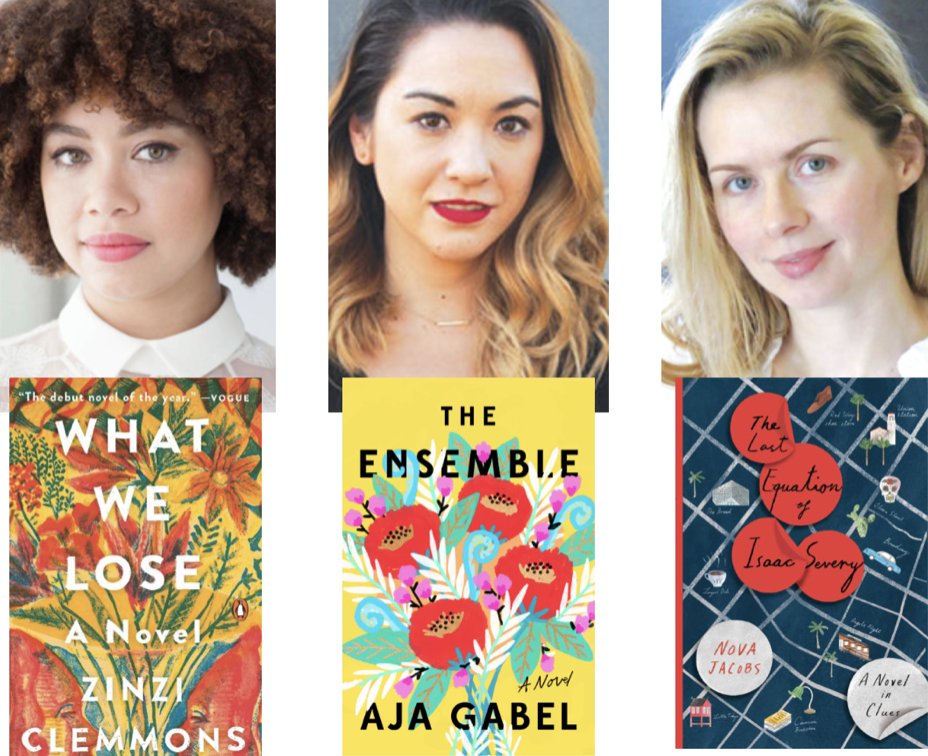
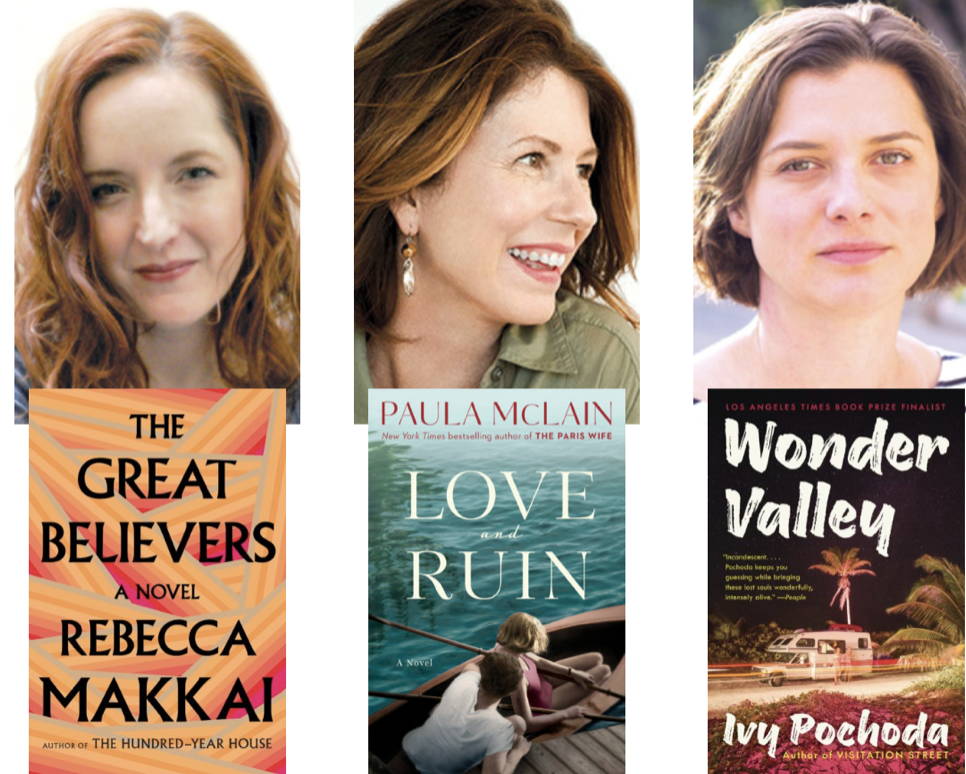
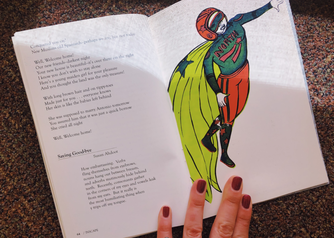
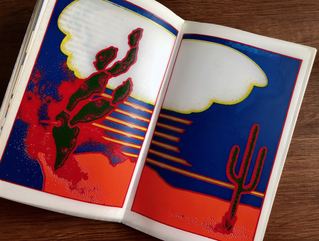
 RSS Feed
RSS Feed